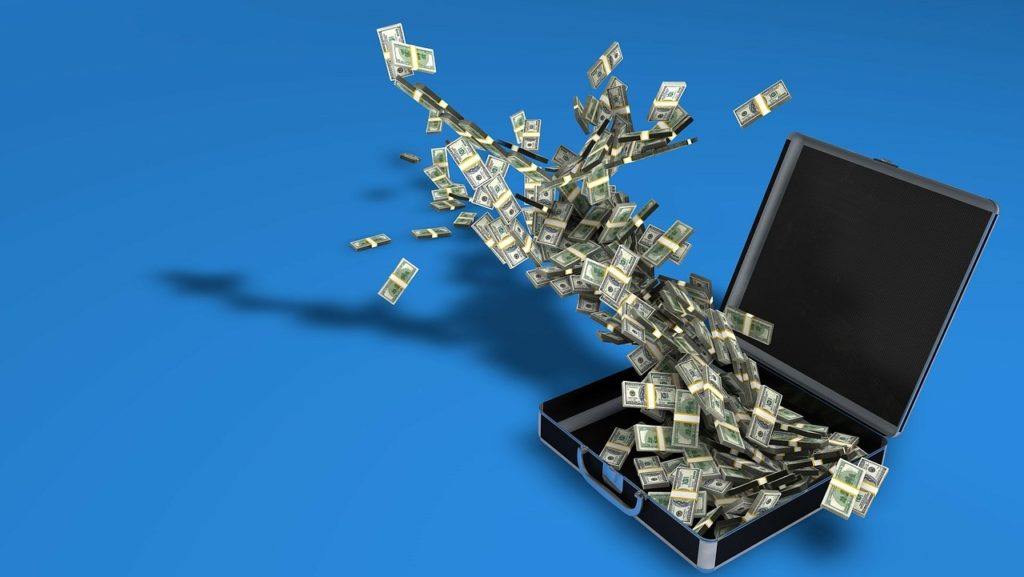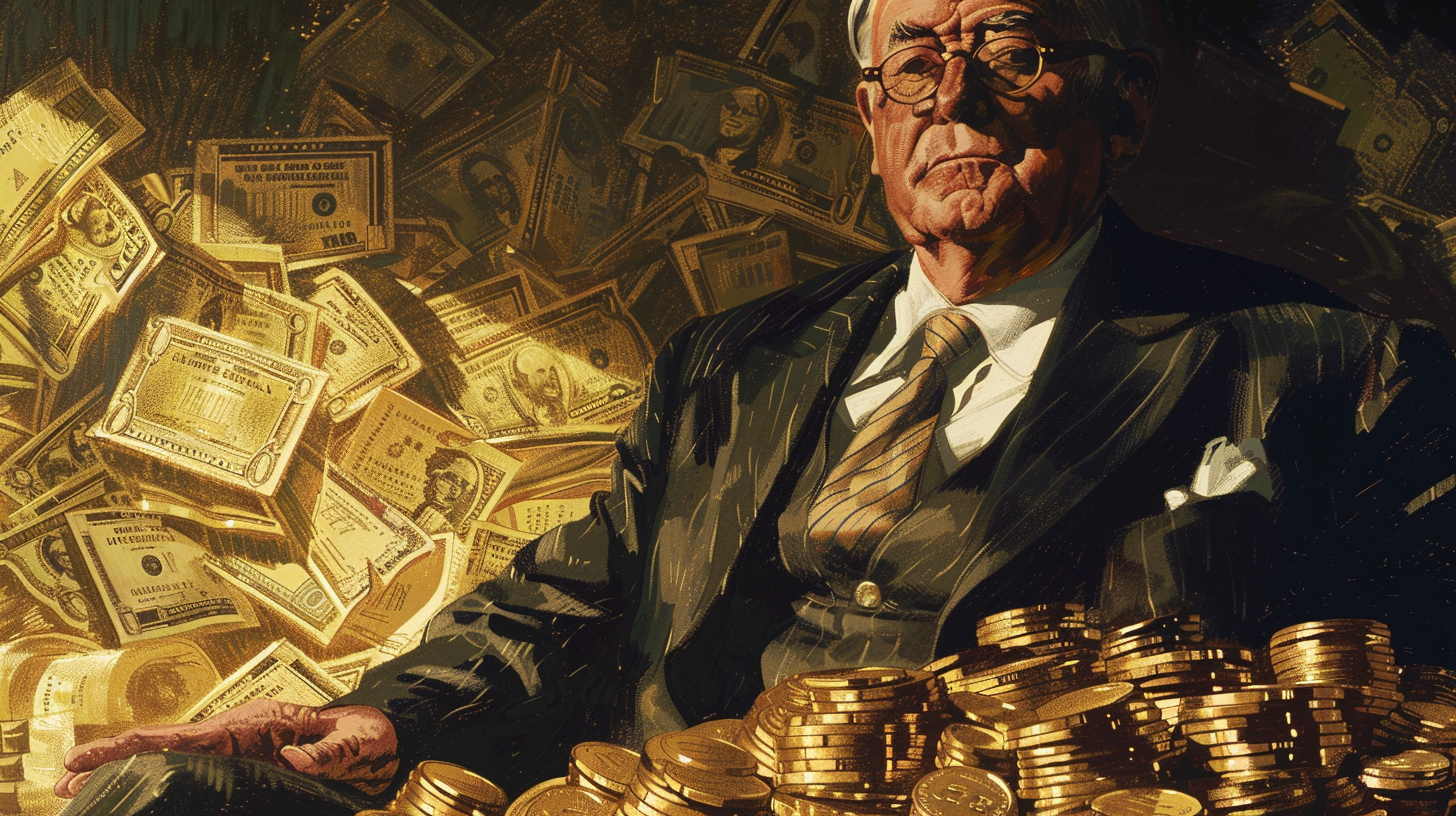Ron Paul: From Nixon Shock to Biden Inflation
This month marks the 50th anniversary of President Richard Nixon slamming shut the so-called “gold window” and severing the last ties between the dollar and gold.
On Aug. 15, 1971, Nixon ordered Treasury Secretary John Connally to uncouple gold from its fixed $35 price and suspended the ability of foreign banks to directly exchange dollars for gold. Nixon’s order was the end of a path off the gold standard that started during President Franklin D. Roosevelt’s administration, and it set the foundation for the massive government spending and inflation we’re dealing with today.
![]()
The following article by Ron Paul was originally published at the Ron Paul Institute. The opinions expressed are the authors and do not necessarily reflect those of Peter Schiff or SchiffGold.
This month marks fifty years since President Richard Nixon closed the “gold window” that had allowed foreign governments to exchange US dollars for gold. Nixon’s action severed the last link between the dollar and gold, transforming the dollar into pure fiat currency.
Since the “Nixon shock” of 1971, the dollar’s value — and the average American’s living standard — has continuously declined, while income inequality and the size, scope, and cost of government have risen.
Since the beginning of this year, price inflation has increased much, and it could continue onward to exceed the 1970s-era price spikes. Understandably, Republicans are trying to blame President Joe Biden for the price increases. However, a major cause of the current price inflation is the unprecedented money creation the Federal Reserve has engaged in since the 2008 market meltdown. This, though, does not mean Biden and most US politicians of both parties do not bear some responsibility for rising prices. Their support for the Fed and massive government spending contributes to the problem.
The main way the Fed pumps money into the economy is by monthly purchases of 120 billion dollars of Treasury and mortgage-backed securities. Even many Keynesian economists agree that rising price inflation means the Fed should stop pumping money into the economy. Yet, this year the Fed is likely, at most, to only slightly reduce its purchases of Treasury securities. It will almost certainly keep interest rates at near-zero levels.
A reason the Fed will not stop or significantly reduce its purchases of Treasuries and allow interest rates to increase is that doing so would increase federal debt payments to unsustainable levels. Even with interest rates at historic lows, interest payments remain a significant portion of federal spending, and recent indications are that the US government is not about to start being frugal. Consider, for example, Congress’ six trillion dollars “Covid relief and economic stimulus” spending spree and the Senate passage of the trillion dollars “traditional infrastructure” bill and a budget “outline” of a 3.5 trillion dollars “human infrastructure” bill.
The “human infrastructure” bill represents an expansion of government along the lines of the Great Society. Among its initiatives are universal pre-kindergarten; two “free” years of community college; increased government control of health care via expansions of Obamacare, Medicare, and Medicaid; and a raft of new government mandates and spending aimed at reshaping the US economy to fight “climate change.”
The need to gain the support of “moderate” Democrats will likely mean the final “human infrastructure” bill will cost less than 3.5 trillion dollars. However, no Democrat is objecting to the bill’s programs; the objectors just want cheaper tolls on the road to serfdom. While progressives will likely accept reduced spending levels in order to get their wish list into law, they will then work to increase funding and expand the programs. As the programs become more entrenched, even many “conservatives” will support increasing their funding.
The expansion of government will increase pressure on the Fed to keep the money spigots open. This will lead to a major economic crisis. The good news is the crisis may mark the beginning of the end of the fiat monetary system and the welfare-warfare state, along with the dawn of a new era of free markets, sound money, and limited government.
Copyright © 2021 by RonPaul Institute. Permission to reprint in whole or in part is gladly granted, provided full credit and a live link are given.





 In April, the U.S. economy added a disappointing 175,000 jobs, falling short of expectations and nudging unemployment up to 3.9% (see current trends here). This signals a slowing economy that might force the Federal Reserve to put the guard rails back on. Our guest commentator gives a deeper look at a worrisome trajectory: while part-time […]
In April, the U.S. economy added a disappointing 175,000 jobs, falling short of expectations and nudging unemployment up to 3.9% (see current trends here). This signals a slowing economy that might force the Federal Reserve to put the guard rails back on. Our guest commentator gives a deeper look at a worrisome trajectory: while part-time […] Beneath the sweet surface of our favorite treats lies a bitter reality: inflation has sent cocoa prices soaring to unprecedented heights. Once deemed the food of the gods and now a daily indulgence for millions, chocolate is facing a dramatic upheaval as wholesale cocoa prices have rocketed past $11,000 per ton. Our guest commentator explains […]
Beneath the sweet surface of our favorite treats lies a bitter reality: inflation has sent cocoa prices soaring to unprecedented heights. Once deemed the food of the gods and now a daily indulgence for millions, chocolate is facing a dramatic upheaval as wholesale cocoa prices have rocketed past $11,000 per ton. Our guest commentator explains […] As fiscal imbalances persist, driven by coercive measures and artificial currency creation, the middle class faces erosion and purchasing power dwindles. But as the world hurtles towards a potential reckoning, the lingering question remains: can this precarious balance last, or are we teetering on the brink of a cataclysmic economic shift?
As fiscal imbalances persist, driven by coercive measures and artificial currency creation, the middle class faces erosion and purchasing power dwindles. But as the world hurtles towards a potential reckoning, the lingering question remains: can this precarious balance last, or are we teetering on the brink of a cataclysmic economic shift? Beneath the veneer of headline job gains, the American economy teeters on the brink: native employment dwindles as part-time and immigrant jobs surge. Government hiring camouflages looming recession warnings. Inflation and political blunders worsen the crisis, fueling public outrage at the establishment’s mishandling of the economy.
Beneath the veneer of headline job gains, the American economy teeters on the brink: native employment dwindles as part-time and immigrant jobs surge. Government hiring camouflages looming recession warnings. Inflation and political blunders worsen the crisis, fueling public outrage at the establishment’s mishandling of the economy. On April 5 1933, Franklin D. Roosevelt abandoned the gold standard, wielding questionable legal power amidst America’s dire economic depression. His whimsical approach to monetary policy, including coin flips and lucky numbers, unleashed unprecedented inflation and price increases that have since amounted to nearly 2500%. Our guest commentator explores this tragic history and the legacy […]
On April 5 1933, Franklin D. Roosevelt abandoned the gold standard, wielding questionable legal power amidst America’s dire economic depression. His whimsical approach to monetary policy, including coin flips and lucky numbers, unleashed unprecedented inflation and price increases that have since amounted to nearly 2500%. Our guest commentator explores this tragic history and the legacy […]